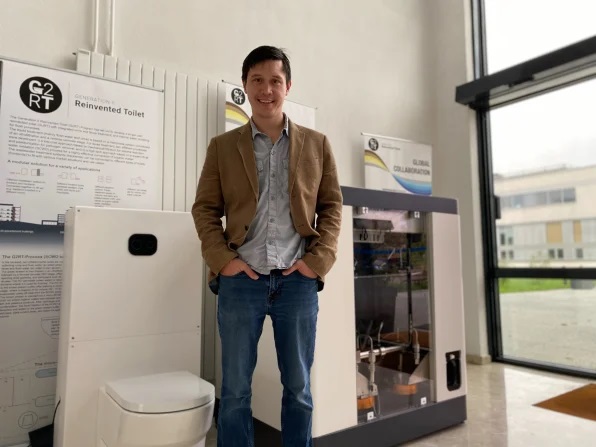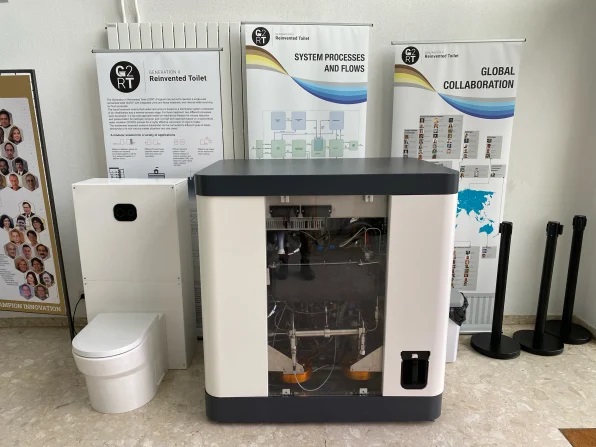The Super Toilet promoted by Gate Foundation
Many people around the world don’t have access to a modern toilet and have a sewage system unable to treat human waste. However, even where there’s a working sewage system, the problem is that it requires a lot of water due to inefficient toilets.
To fix these problems, Shannon Yee, an associate professor at Georgia Institute of Technology, is trying to change the way we think about waste. Not for nothing, there’s a word play on his name with people saying “you need to go take a Yee” in place of the word ‘pee’.
As explained here, Yee is in charge of a group of engineers developing a water-less super toilet that can be used everywhere without the need for a sewer infrastructure thanks to funding from the Gates Foundation’s “Reinvent the Toilet Challenge”.

“Stated very simply, we’re taking infrastructure and we’re turning it into an appliance”, Yee says. “So, no water coming into the toilet and no output sewage… You just plug it in wherever you need a bathroom and it treats your waste”.
Yee has experience with thermal energy technologies rather than toilets however, this new kind of toilet also uses heat and is powered by electricity. It has a front-end unit that resembles a standard toilet and a rear processing unit where waste is treated. The poop is heated to high pressure while remaining separate from the liquids.
“We enter into this phase of matter known as a supercritical fluid where the feces spontaneously combusts underwater. It’s a pretty unique way of doing this: we can actually burn feces underwater”, Yee says.
The stools are converted into little, odorless ‘poop cakes’, which can be composted or thrown in the garbage, while the purified pee is employed to flush the toilet.
The “super toilets” are currently being tested by Yee and his colleagues in South Africa, India, China, and the United States. If the idea is successful, he expects it will enable towns to avoid spending millions of dollars on sewage and garbage processing facilities.
Yee’s work is just one of many international initiatives attempting to address the complex issue of human waste.

